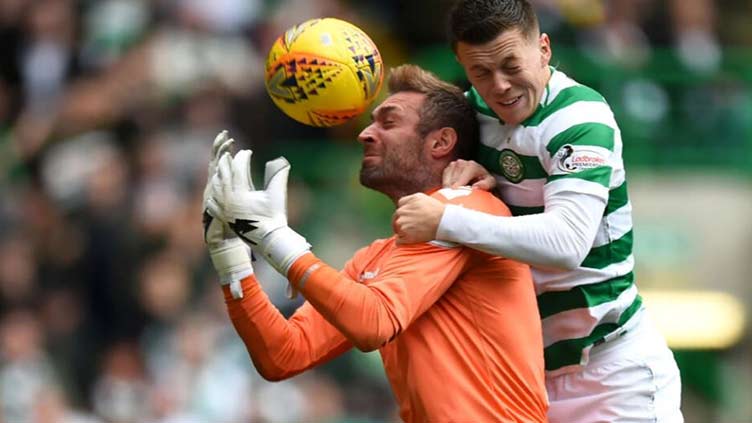Heading restricted for Scottish clubs to minimise brain injury risk

Sports
Heading restricted for Scottish clubs to minimise brain injury risk
GLASGOW (AFP) – Heading for professional footballers in Scotland is to be restricted to one training session a week under new guidelines aimed at reducing the risk of long-term brain injuries.
Players will be banned from heading the day before and after a match, but there remains no restriction on heading during games.
The guidelines put in place by the Scottish Football Association (SFA) come after Glasgow University research that showed former footballers were three-and-a-half times more likely to die from brain disease.
"The historic University of Glasgow study (FIELD), which found an increased risk of neurodegenerative disease in retired professional footballers, compared to a matched population control group, has been a catalyst for a radical rethink of football guidance," said SFA chief executive Ian Maxwell.
Heading has already been banned in under-12s football in England, Scotland and Northern Ireland.
The new guidelines have been introduced after consultation with Scotland s 50 clubs across the professional men s and women s game.
Clubs have also been instructed to monitor heading activity in training to reduce the overall burden on the brain.
“While the research continues to develop, what we already know about heading and its effects on the brain suggests that there is measurable memory impairment lasting 24-48 hours following a series of headers," said Dr John MacLean, the SFA s Chief Medical Consultant.
"Brain scan changes have also been reported in footballers that may be linked to heading. Therefore, the goal is to reduce any potential cumulative effect of heading by reducing the overall exposure to heading in training."
Football has been consistently criticised for lagging behind in its willingness to adopt change in reaction to further research on head injuries in the game.
Permanent concussion substitutes are currently in a trial phase, including at the World Cup in Qatar.
However, the lack of temporary concussion substitutes means medical staff are often forced into taking a swift decision on whether a player is fit to continue.
FIFA s World Cup concussion protocol was labelled "an abject failure" by brain injury charity Headway after Iran goalkeeper Ali Beiranvand briefly played on against England despite a clash of heads that required lengthy treatment last week.

